CONTINGENCY OPERATING BASE SPEICHER, Iraq -- Intelligence reporting indicated that foreign fighters could be located in a town in Iraq's northwestern Ninewah province near the Syrian border.
A short time later, ground forces moved through the city. Simultaneously, Hawaii-based Soldiers flying two UH-60 Black Hawks inserted Iraqi commandos and Michigan-based infantrymen near the main supply route to prevent vehicles and personnel fleeing the town, Nov. 7.
The afternoon mission was just one of almost three dozen day and night, partnered checkpoint missions, labeled as vehicle interdiction snap traffic control point operations conducted since mid-September.
The crews responsible for execution are pilots and aircrews of Task Force Desperados, consisting of the Tennessee Army National Guard's 1-230th Air Cavalry Squadron, and elements from 2nd Battalion, 25th Aviation Regiment, 25th Combat Aviation Brigade; the 3rd Iraqi Army commandos based in Al Kisuk, Iraq, and the Michigan Army National Guard's Company F, 425th Infantry (Airborne), Long Range Surveillance, attached to 6th Squadron, 9th Cavalry Regiment, 3rd Heavy Brigade Combat Team, 1st Cavalry Division.
Col. Michael D. Lundy, the commander of Task Force Wings, 25th CAB, oversees aviation operations in United States Division-North, and said that missions like the one in Ninewah province are just one of the many types of operations his deployed forces are designed to accomplish.
"The purpose of our aviation operations is to enable ground force commanders to accomplish their mission," said Lundy. "We apply our aviation assets not only to best facilitate that purpose, but also to foster and improve the partnered relations U.S. forces have already built and to increase the capacity of the Iraqi Security Forces."
Capt. Nicholas Ploetz, a Black Hawk pilot and commander for Company A, 2/25 Avn. Regt., was one of four pilots who inserted and extracted the U.S. and Iraqi Soldiers Nov. 7. The native of Santa Maria, Calif., explained the concept of the operation.
"The partnered, snap traffic control points are to deny foreign fighters freedom of movement throughout USD-N," Ploetz said. "They are an important show-of-force, because they demonstrate that we are capable of moving combined teams of Iraqi and U.S. Soldiers to any point on the battlefield at any time in support of the ground force commander," he continued. "It's also an opportunity to help train the Iraqi Security Forces in the area, and to better establish partnered relationships."
By all accounts, the training and partnership is working in northern Iraq.
Sgt. 1st Class Jason Hamilton and 2nd Lt. Jacob Stimson, operations noncommissioned officer-in-charge and platoon leader, respectively, for Company F, 425th (Airborne), Long Range Surveillance, Michigan Army National Guard, have participated in dozens of partnered operations with the 3rd Iraqi Army commandos using TF Desperados' air assets.
The 425th arrived to Iraq in July, and according to Sgt. 1st Class Hamilton they are responsible for battle space along the Syrian border and are primarily involved in preventing foreign elements from coming across the Syrian border into Iraq; in essence disrupting and denying their freedom of movement.
"Today's mission was to set up a snap TCP and try and catch individuals fleeing the town, and of course, none of it would have been possible without the flexibility and speed of the Black Hawk helicopters" said Hamilton.
"As far as our [Iraqi counterparts] are concerned, they performed very well," continued Hamilton. "The commandos are extremely motivated and learning very quickly on how to conduct these missions, and seem to value working with us."
Hamilton's platoon leader agreed. "Today was a success," said Stinson. "We arrived on time and where we needed to be. Everything we do is, 'by, with and through' [Iraqi Security Forces] and we are definitely taking advantage of the partnered relationship to the fullest extent."
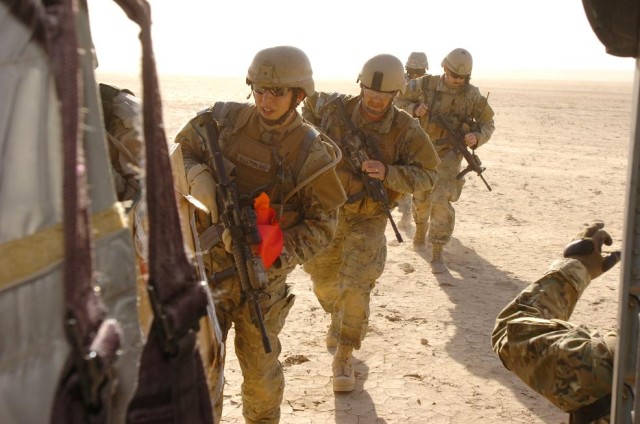
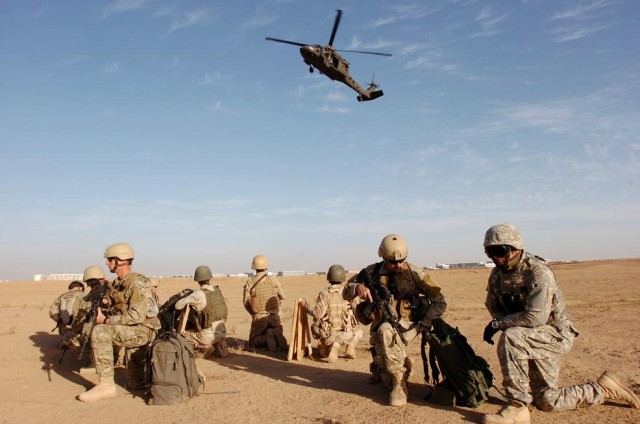
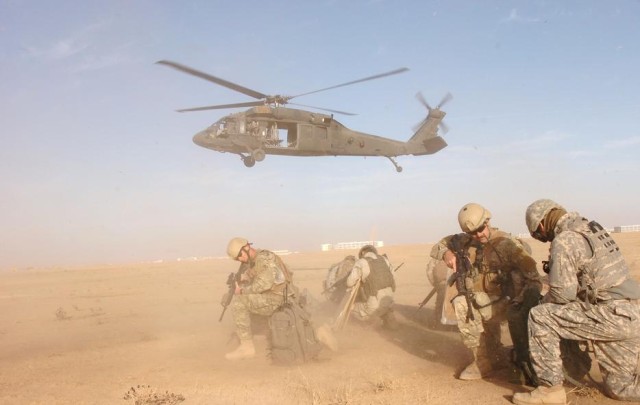
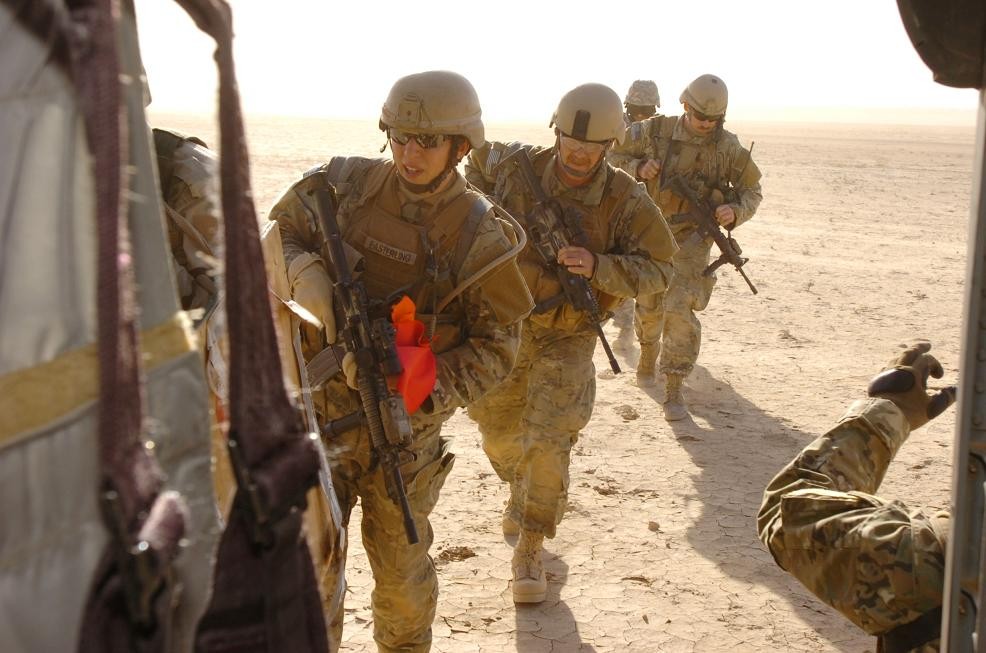
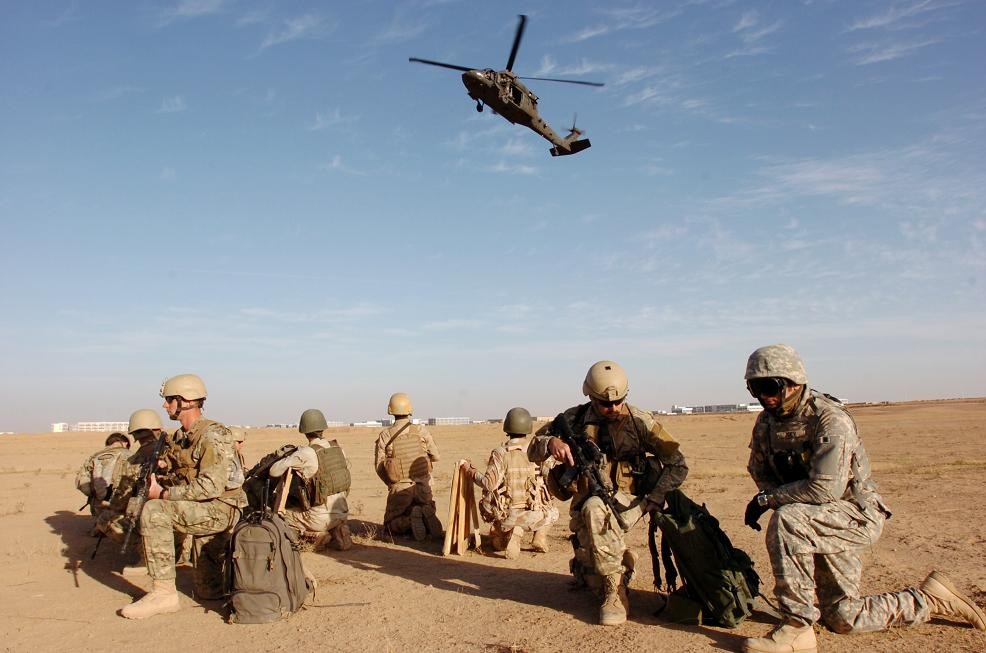
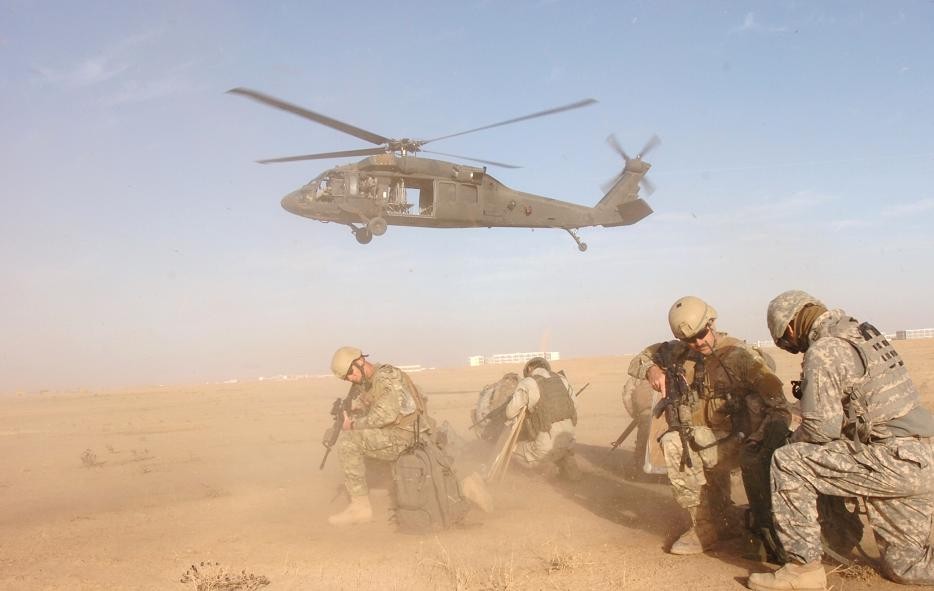
Social Sharing